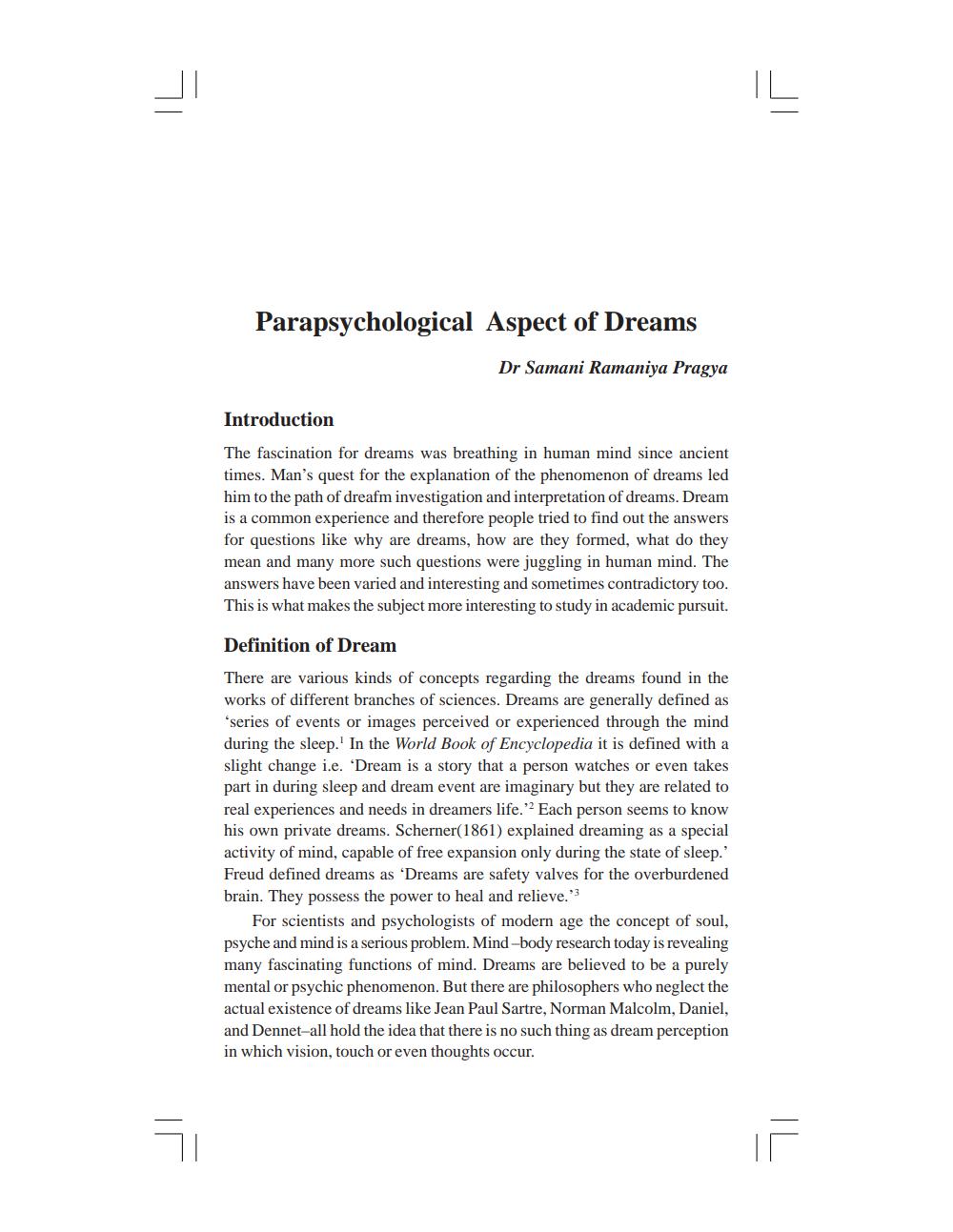________________
Parapsychological Aspect of Dreams
Dr Samani Ramaniya Pragya
Introduction
The fascination for dreams was breathing in human mind since ancient times. Man's quest for the explanation of the phenomenon of dreams led him to the path of dreafm investigation and interpretation of dreams. Dream is a common experience and therefore people tried to find out the answers for questions like why are dreams, how are they formed, what do they mean and many more such questions were juggling in human mind. The answers have been varied and interesting and sometimes contradictory too. This is what makes the subject more interesting to study in academic pursuit.
Definition of Dream
There are various kinds of concepts regarding the dreams found in the works of different branches of sciences. Dreams are generally defined as 'series of events or images perceived or experienced through the mind during the sleep. In the World Book of Encyclopedia it is defined with a slight change i.e. 'Dream is a story that a person watches or even takes part in during sleep and dream event are imaginary but they are related to real experiences and needs in dreamers life.' Each person seems to know his own private dreams. Scherner(1861) explained dreaming as a special activity of mind, capable of free expansion only during the state of sleep.' Freud defined dreams as 'Dreams are safety valves for the overburdened brain. They possess the power to heal and relieve."
For scientists and psychologists of modern age the concept of soul, psyche and mind is a serious problem. Mind-body research today is revealing many fascinating functions of mind. Dreams are believed to be a purely mental or psychic phenomenon. But there are philosophers who neglect the actual existence of dreams like Jean Paul Sartre, Norman Malcolm, Daniel, and Dennet-all hold the idea that there is no such thing as dream perception in which vision, touch or even thoughts occur.




